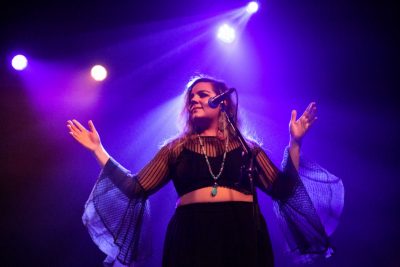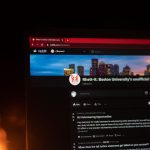With city shutdowns and stay at home orders, every work sector has been hit hard. But Boston’s creative community has been struggling to stay afloat as event cancellations attempt to flatten the curve.

Genie Santiago, a Boston-based rhythm and blues musician, said COVID-19 lockdowns have meant much more than mere forced-seclusion inside her home. She had recorded a single to be released in May, she said, but the work can no longer be completed by then.
“I have a new single and we just finished it up right before this happened … It was like, ‘Oh my God, we’re going to release this,’” Santiago said. “We were supposed to start filming the [music] video in April, and then the single was supposed to be released early May, and then the music video is supposed to be released [in] late May. So none of that is happening now.”
With her full-time job as a nanny to end in September and a now uncertain plan to become a full-time musician, Santiago said she worries what the future holds for both her career and financial stability.
“It’s a really scary feeling, to feel like what’s going to happen next, what’s going to happen to me? What’s going to happen to my art?” Santiago said. “You start to doubt yourself, like did I choose this wrong thing to be, to dream about? Should I have been “essential,” should I have done something like that?”
Shamara Rhodes, a DJ from Dorchester, said she has felt uncertainty since Boston was declared to be in a state of emergency and when events started getting cancelled.
“Once they put into place the actual ban of [gatherings of] 10 people or less, it was like a ripple effect,” Rhodes said. “I was booked out until August and every single [event] has been cancelled.”
Rhodes said the cancellations of her events have spiraled into more serious issues, such as housing instability. The DJ currently resides temporarily at an Airbnb, and said she holds high hopes for more secure housing by May.
“I’ve recently gotten a couple of small grants that have helped sustain with food and stuff like that,” Rhodes said. “But right now it’s just maintaining, there’s no work unless I do want to work at a factory, warehouse and stuff like that, but then that’s putting myself at risk more just to be sustainable, just to stay alive.”
Harmeet Bhatia, a sophomore at Berklee College of Music who majors in guitar performance and music business, said he believes social isolation has taken a large toll on his community.
“Music and the arts in general just relies on collaboration, being in the same room as somebody … people like to work on stuff together, people like to gather and listen to music,” Bhatia said. “[The current situation] is just kind of eating away at the whole core of it.”
Bhatia said he is especially concerned with the quality of education he’s now receiving remotely, and what that means in terms of gaining the knowledge he needs to advance his craft.
“[Berklee students] paid for an education that was supposed to be more in depth,” Bhatia said. “You pay for the credits to learn from actual masters of their craft, but now you’re just watching them on Zoom, and it’s kind of laggy and you can’t hear them clearly. You paid to be in the same room as them and to get their experience.”
Despite concerns over quality of education, housing and job stability however, the struggles of the “starving artist” is not something unfamiliar to the creative community, Santiago said. Especially during these times, she said artists depend on their communities for moral and financial support.
“Mentally, it helps us to feel like we’re still relevant, and that what we’re doing wasn’t a mistake,” Santiago said, “that we’re still existing and that our art is still alive.”
CORRECTION: A previous version of this article stated that Genie Santiago’s part-time nanny job would end this summer. An updated version states she is a full-time nanny and had been planning to switch to full-time musician come September.














